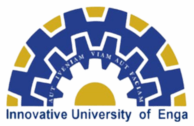
Innovative University of Enga - Dept. of Education - Primary Teaching, like many teacher education institutions, offers different strands or specialized tracks within its programs. These strands are designed to provide students with focused training and expertise in specific areas of education. While the specific strands available at Innovative University of Enga - Dept. of Education - Primary Teaching may vary, here's a general overview of what these strands might entail:
Mathematics and Science Strand:
This strand focuses on preparing future educators to teach mathematics and science effectively.
Students in this strand deepen their understanding of mathematics and science concepts and explore innovative teaching methodologies.
They may engage in practical teaching experiences, emphasizing hands-on experiments and activities to make these subjects engaging for students.
Technology integration and data analysis may also be part of this strand to enhance STEM (Science, Technology, Engineering, and Mathematics) education.
Language and Literature Strand:
This strand emphasizes the teaching of language arts and literature, including reading, writing, speaking, and listening skills.
Students learn how to promote literacy, critical thinking, and communication skills in their future students.
The curriculum may include courses in linguistic theory, literature analysis, and creative writing.
Future language and literature educators may explore techniques for teaching English and local languages effectively.
Social and Spiritual Strand:
The social and spiritual strand may focus on holistic education, considering both the intellectual and moral aspects of learning.
Students in this strand learn how to foster social and emotional development, character education, and ethical values among their students.
It may also involve teaching about spirituality, religious tolerance, and values-based education.
Community engagement and service-learning could be integral components of this strand.
Community Development Strand:
This strand prepares educators to actively engage with and contribute to the development of local communities.
Students learn to conduct needs assessments, develop community projects, and collaborate with various stakeholders.
Emphasis is placed on addressing social and environmental issues, promoting sustainable development, and empowering community members through education.
Professional Development Strand:
The professional development strand may focus on enhancing the skills and leadership abilities of educators.
It includes training in pedagogical best practices, instructional design, and educational leadership.
Educators in this strand learn how to mentor and coach other teachers, lead professional development initiatives, and stay updated with current educational research and trends.
Special Education Strand:
This strand prepares educators to work with students with diverse learning needs, including those with disabilities.
Students learn about inclusive education, special education laws, and strategies for supporting students with different abilities.
Training may include individualized education plan (IEP) development and assistive technology integration.
Early Childhood Education Strand:
This strand focuses on the unique needs of young children and early childhood development.
Students learn about child psychology, curriculum development for preschool and early elementary grades, and effective teaching techniques for young learners.
Each strand at Enga Teachers College is designed to equip future educators with specialized knowledge and skills related to their chosen field. These strands reflect the college's commitment to preparing well-rounded, effective, and culturally responsive educators who can address the diverse educational needs of their communities. The specific strands available at the college may evolve over time to align with changing educational priorities and demands.